The Big Debate: Is it OK to send my child to school or nursery with a runny nose?
In the wake of the pandemic, all parents are now well-versed in screening their children for the slightest sign of sickness.
The UAE’s strict health regulations have meant children being sent home from their educational institutions if they exhibit anything from a fever to a cough or runny nose. The precautions have been there since COVID-19 first emerged to keep children and their families safe – and, for the most part, parents have been grateful for the additional caution that has enabled school and nursery life to be as safe as possible.
But it is now almost three years on from when the pandemic first began, and some UAE parents are starting to get slightly sick of things themselves.
“Enough is enough,” says Katy Rice, Dubai-based founder of sustainable online family concept store Eco Souk and the mother of three children aged 9, 6 and 2.
“Kids are going to catch a cold and colds still exist. It’s nothing new. The general common sense that we all used to apply before COVID was that you wouldn’t generally keep your child home from school unless they had a fever or were particularly unwell with a streaming cold or cough. In the case of a simple runny nose we would never have dreamt of keeping them out of school or nursery for five, seven, five or ten days at a time. I think we should get back to a place where parents are again empowered to make a decision on whether or not their children are well enough for school.”
New strain calls for new precautions?
Parents like Katy point to the fact that the new Covid variants appear to be much milder than the earlier strains of COVID-19, and that the high vaccination rate in the UAE means that COVID poses a much lower risk than it used to.
However, the jury is still out on the exact character of Omicron. Record numbers of children have been hospitalized with COVID-19 in the US, according to The New York Times, and the number of new infections reported per day continues to skyrocket. “Nevertheless, some clinical reports indicate that Omicron patients fare better than those with other variants and research suggesting that Omicron doesn’t target tissues associated with worse disease outcomes, offer encouraging signs,” writes Dan Robitzski in The Scientist. “But whether that makes Omicron ‘mild’ is, experts say, less clear.”
The sickness spiral
What is clear, though, is that young children tend to get sick – a LOT. Long before any of us had ever heard of COVID-19, kids were catching sniffles and coughs throughout their nursery and school careers, and rarely missing school because of it.
With the added factor of a lot of children having spent a large amount of time at home during the pandemic, the return to face-to-face learning also means their immature immune systems are suddenly being exposed to new germs – especially in very little children, who are less able to adhere to the COVID-related social distancing precautions that are still in place for older kids.
Combined with the current 7-day quarantine requirements for close contacts in Dubai, for parents like Katy this has meant her children have hardly been at school at all this year. “My six-year-old son was a close contact on two occasions and spent pretty much an entire month out of school, which in turn disrupted an entire month of my own work,” says Katy, who is a self-employed business owner. “Then when my eight-year-old daughter caught COVID this year, she suffered mildly for two days and was then fine. But my entire house was isolating for ten days, which included my helper and her husband. Four of us adults were all grounded for the quarantine period, unable to work properly – and none of us were sick. How can businesses run when people are not in work because they’re at home waiting to start showing COVID symptoms?”
Pernickety with a purpose
Parental frustration like Katy’s is the something nursery and school staff are well aware of, as the Home Grown Children’s Eco Nursery team wrote in a message to parents:
“With the rise in COVID cases over the past month and the endless worry of close contact cases, we know that it is a very disruptive and frustrating time for us all. The Omicron variant has brought with it a whole new set of challenges for us to navigate, the most significant being that it is highly contagious and symptoms can be as minimal as a runny nose or a spike in fever for 24 hours, making it very difficult to detect or realise that there may be cause for concern.
“Our nurses and staff have been extremely vigilant of late and have been asking parents to keep their children at home should they have a symptom of COVID, albeit mild. They have also been requesting parents to pick up children from the nursery or take them directly home should we detect a child displaying one symptom or more on arrival or throughout the day. While we appreciate that this may seem excessive and bring with it cause for complaints and inconveniences, we are happy to say that our nurses have managed to help keep our classrooms open and prevent close contact cases from happening. We have had several incidents now where positive cases in children have been discovered before the child can enter the classroom and we are so grateful to our parents for their cooperation and for following our nurses’ advice.”
The kids aren’t alright
Parents complain that the high likelihood of young children getting sick with symptoms that could suggest COVID (but often aren’t) means that their kids have spent hardly any of their time at nursery or school this academic year – schooling time that parents are paying for. Additionally, the disruption caused by constant breaks in schooling means that the children are not able to settle properly, and so drop-offs remain stressful and anxiety-ridden even month into the academic year.
However, the bottom line for some parents is that their children are suffering from the disruption in their schooling and they need a more solid sense of normality “I think the children have really suffered the most in all of this,” say Katy. “My daughter has become so sensitive and cries at the drop of a hat. She was so terrified when I picked her up from school after she’d exhibited COVID symptoms that I didn’t even tell her that she had tested positive because I knew it would really freak her out.
“Parents used to be trusted to make a judgement on whether their child was truly sick or not, and we should be given the opportunity to make that judgement again.
“We need to let children outside again – let them mix and see their friends and play. We need to give these kids their childhood back.”
What the experts say
But how often is too often for your child to fall sick? And is it ever OK to send your child to school or nursery with a runny nose? Here’s what the experts had to say…
NB: If you are ever in doubt about your child’s health, we would always recommend that you consult a doctor who will be able to offer professional advice. The guidance below might give you a little more insight from an educational perspective.
How common is it for children to get sick when they first start school or nursery?
“Once children start interacting with a wider social circle, they do tend to pick up minor illnesses as their immune systems develop – coughs, colds and runny noses are all common as they build their defences,” says Rebecca Howells, Assistant Head Principal at GEMS Wellington Academy – Al Khail. “This usually occurs during the pre-school or Foundation Stage years, so it is likely that our youngest learners will experience some minor illnesses during this time.”
However, some children seem to be more affected by this than others, says Howells. “Several factors may contribute to this, including sleep, nutrition, health, well-being and previous exposure to social groups. Some factors may be completely out of a parent’s control; for example, some children at the sensory-exploration stage are more likely to place environmental objects near their mouths, causing them to pick up germs. With time and patience, illnesses at this age will become less frequent.”
“It is fairly common for a child to get sick when he or she joins a school or nursery,” agrees Dr Puneet Wadhwa, Specialist Pediatrician at Prime Hospital (primehealth.ae). “You can consider it as a normal chapter in the development of a child’s immunity.”
But when it comes to the question of how many times it is normal for a child to get sick, Dr Wadhwa says there is no single answer: “A child may get between two and 10 respiratory infections a year, so the range is wide,” he says. “Generally, by the time they join school at the age of four or five these start to become less frequent, and by preadolescent age they are even less frequent.”
GEMS Wellington’s Howells adds: “Due to the ongoing pandemic, many children have had limited interactions with others outside of the family home – some haven’t been able to attend baby or toddler groups. We find that these children may be more likely to pick up minor illnesses when they begin nursery. Giving children social experiences, with people outside of the family, can help to build immunity.”
How can you avoid a child falling sick when they first start school?
“To an extent it’s avoidable through the implementation of proper hand and food hygiene – especially when it comes to the stomach flu and diarrhoea,” says Dr Wadhwa. “For coughs, colds and respiratory infections hand hygiene will help to reduce the spread, but it’s not usually possible to avoid spreading it altogether, as is the case with stomach bugs. Sicknesses due to allergies can be avoided altogether by keeping a check on the triggers of allergies.”
Is it a good thing for children to get sick often to build up their immunity?
“Exposing children deliberately to sick people is not recommended to develop immunity,” says Dr Wadhwa. “Some studies are underway – like the hygiene hypothesis – which are looking into this concept, but the results are still inconclusive.”
This is a broad question, with no straight answers, says Dr Wadhwa. “Some infections are nasty and life-threatening or life-changing. We already have vaccines for some of the most deadly diseases, or the ones which leave us with permanent disability, like polio or meningitis. These are to be avoided at any cost.”
How can you tell if the frequency of sickness is normal, or if it could be a problem with your child? Or something that the school or nursery is/isn’t doing?
Every child has to be evaluated individually, so it’s better leave it to a paediatrician to decide whether the frequency falls within a normal range, or if something needs to be investigated further. “As a general rule, a child should be growing well physically and developmentally, and any major issues need to be ruled out,” says Dr Wadhwa. More serious problems might only have subtle symptoms, so always take medical advice if you have any concerns. “Try not to google as it will create more confusion. Ask your paediatrician for a trusted and standardized source of online information managed by medical professionals and stick to that information source only.”
How can you tell if it is a contagious sickness or something like an allergy?
As a general rule all infections are contagious, says Dr Wadhwa. “If a child has a fever with cold, cough or flu symptoms he is potentially infectious to others – but often it may present without a fever, or a mild fever is often missed.”
While allergies are not contagious, if a child has an allergy-related cough or cold that is lingering, it needs medical attention to bring it under control, he adds.
“Plus, allergies and contagious sickness can coexist in a child at the same time – in fact it is fairly common – so again take medical advice to determine whether a child is contagious or not.”
But it is never OK to send a child to school with a cough, says Dr Wadhwa:
“Even if it is a cough they have had for a long time. It should be evaluated and treated at the earliest to avoid any long-term complications.”
What do nurseries or schools usually do to help reduce the number of children getting sick?
“Health and safety is a primary concern for all educational settings,” says Howells. “We have routines in place to ensure that we maintain a clean and safe learning space, including sanitising table tops and toys/resources, washing hands and faces, covering our mouths when we cough, etc. At GEMS Wellington Academy – Al Khail we instil these routines in our daily practice from the first days. We work with our families to help everyone understand the impact that sleep, nutrition, exercise and general wellbeing can have on one’s health, and we advise parents to keep children at home if they are ever unwell.
“At The Academy, our policy ensures that notably unwell children do not mix with others in class, and our medical team is on hand to check for any suspected symptoms and arrange for parent collection if this is deemed necessary. We also request a medical certificate on returning to school if a child or staff member is unwell for more than one day. If a child is thought to have a transmittable illness, such as a sickness bug, all items are removed from the classroom for deep cleaning before any children return. Our medical team advises parents in advance if they need to look out for any specific symptoms.
“All educational settings should have a policy in place which will include information about health and school attendance. You can ask for this policy to be shared with you so that you understand the protocols for your child’s individual setting.”
How have COVID regulations changed sickness protocols in UAE schools?
“Due to current COVID-19 regulations, classrooms are cleaner than ever,” says Howells. “All furniture, washrooms and resources are regularly sanitised throughout the day and deep-cleaned thoroughly after school. We ensure that ‘messy play’ resources are only used by individual children. We fog our classrooms every evening as an additional precaution. Positive hygiene, e.g. thorough hand washing, nose wiping, tissue disposal is taught and practised every day. The FS children have made their own posters to act as visual reminders when using the washrooms, and they are all well-versed in singing the ‘Happy Birthday’ tune to ensure that they have washed their hands for the recommended length of time.”
COVID has had catastrophic effects across the globe, however, it has taught us about the importance and value of our health and maintaining healthy practices, says Howells: “The health authorities here in Dubai have understandably tightened up protocols in response to the pandemic. Any children, or staff, showing any symptoms relating to COVID are not permitted to remain in school. While I understand that this must be frustrating for working parents, it has been effective in ensuring that illness does not spread amongst peers and staff; even minor ailments have been very short-lived in our classrooms this year.”
IS it ever OK for a parent to send their children into nursery or school with a runny nose?
“We are aware that symptoms such as runny noses are common and can be linked to allergies, such as Rhinitis, and in these cases a medical certificate from your doctor will prevent children from being sent home from school unnecessarily,” says Rebecca Howells of GEM Wellington Academy – Al Khail. “If your child is over two, rubs his/her nose and/or sneezes a lot and has a clear runny nose (that lasts for extended periods of time) without fever, then he/she may have allergies. Your paediatrician can help you work out the cause of the allergy, which may be treatable.”
As a general rule, when should parents keep their child home from school or nursery due to sickness?
“Whenever a child has a fever, vomiting, or is feeling weak and not his or her usual self, he or she should not be sent to school,” says Dr Wadhwa.
“If a child has a known allergy then the paediatrician’s advice should be followed, and if symptoms are excessive then they should be kept at home and medical advice should be sought.”
Howells adds: “We would recommend that if a child has symptoms such as: a fever, sore throat, persistent cough, an unusual rash, vomiting or loose bowel movements they do not come to school and parents should seek medical advice,” says Howells. “Children should not return to school until 24 hours after symptoms subside.”
Bottom Line? The SchoolsCompared verdict.
As with everything parenting, there isn’t a ‘bible’ for the issues we face. There is no right answer except that, of course, we must put children first. The difficulty is that no one ever agrees on what that means in every circumstance, situation and predicament.
Ultimately, we can only as parents do the best that we can do – and in many cases at least we can rely on schools to help by making the decision for us. We have all had calls from schools letting us know that our children should be collected because they have become unwell.
Covid-19 of course has changed absolutely everything – and the responsibilities of doing the right thing carry such severe potential consequences that safety must always come first. In this, we are fortunate that we have such strong regulators to guide us here – in many cases taking away the complexities of having to decide what to do in circumstances where previously we would have been left with only questions, stress and moral hazard.
© SchoolsCompared.com. 2022. All rights reserved.















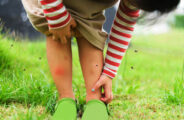






















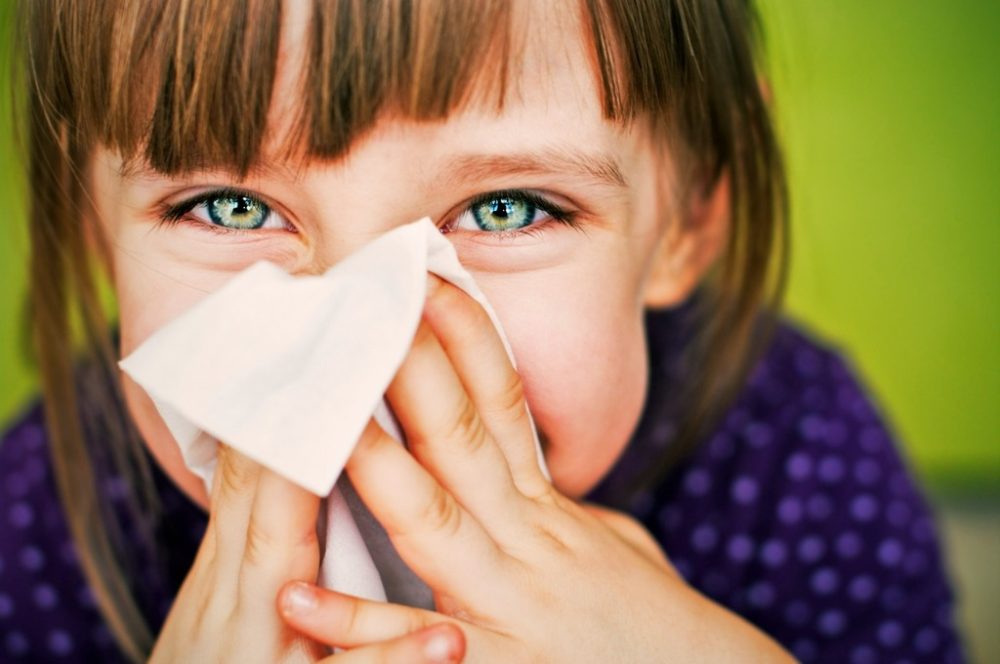

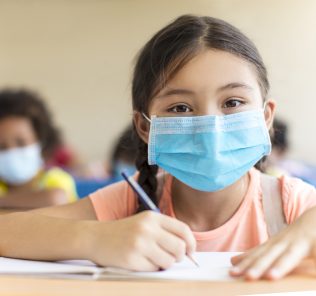
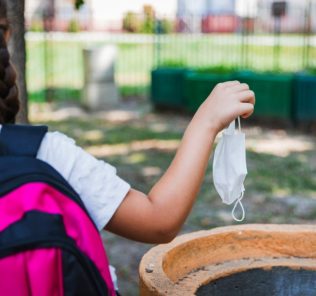






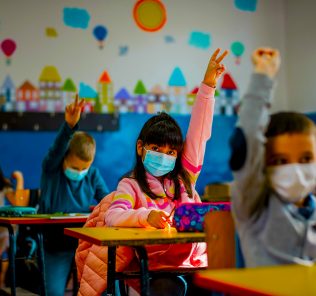

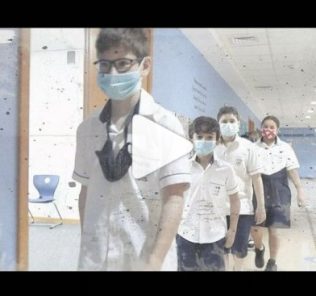



















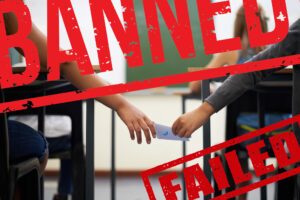

Leave a Response